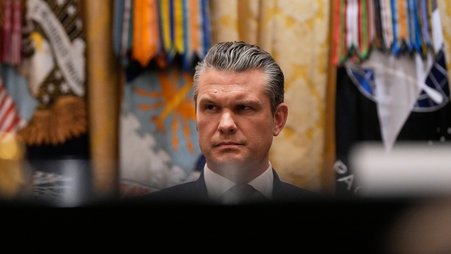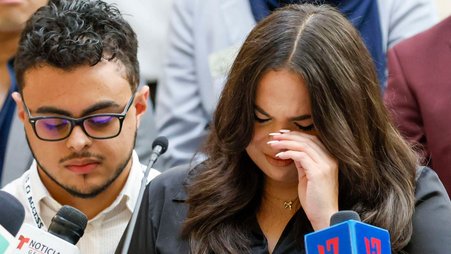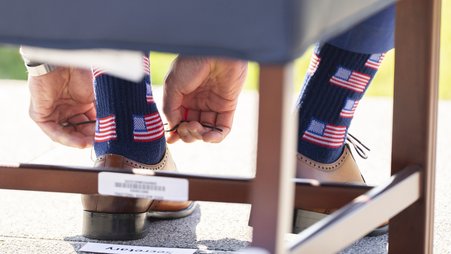
The restraining order obtained by Arizona Sen. Wendy Rogers against Arizona Capitol Times reporter Camryn Sanchez on April 19, 2023.
An Arizona judge struck down a restraining order against a journalist whose supposed offense was to knock on a state senator’s door to ask questions while investigating her residency. The judge ruled last week that the reporter, Camryn Sanchez of the Arizona Capitol Times, had a “legitimate” purpose for her actions and the senator, Wendy Rogers, did not have a “reasonable” basis to fear the journalist. Good news, but it’s troubling that the case got to this point.
As one court explained, journalists have an “undoubted right to gather news from any source by means within the law.” The restraining order, granted on April 19 by Judge Amy Criddle, impeded Sanchez’s ability to pursue her investigation for three weeks until the order was finally withdrawn. In news years, that can be a lifetime. It forced her and the Capitol Times to spend time and money preparing to testify rather than reporting the news. And it let Rogers shift attention from whether she lives in the district she represents to a silly debate over whether journalists can knock on people’s doors.
Our U.S. Press Freedom Tracker has no prior record of a government official obtaining a restraining order against a journalist since it began documenting violations in 2017. The closest case involved a cosmetic surgeon in Los Angeles. A judge quickly dissolved his restraining order upon learning that he’d neglected to mention that the people he sought to restrain were Los Angeles Times reporters. She then ordered the surgeon to pay the Times’ legal fees.
Judge Howard Grodman, who struck down the Arizona restraining order, reportedly expressed skepticism about granting a similar attorney’s fee award. His fear is that doing so might cause those who really need a restraining order to hesitate to seek one. It’s a legitimate concern, but it’s easily mitigated by making the reasons for the award clear. An attorney’s fee award is far more likely to dissuade other politicians from similar antics than it is to scare victims of real abuse away from the courthouse. Anyone who is not an elected official seeking to muzzle journalists investigating potential malfeasance should have nothing to worry about.
Other comments at the hearing were also concerning, despite the positive outcome. Rogers’ lawyer contended that the recent passing of state legislation to keep elected officials’ addresses and other personal information out of the public record meant that it was reasonable to bar journalists from politicians’ doorsteps. We’ve written that similar legislation, even where seemingly well-intended, creates a slippery slope that will ultimately reduce transparency and accountability. But we never imagined an argument quite so preposterous.
Fortunately this particular judge didn’t buy it. But what about the next one? After all, another judge, Criddle, granted the restraining order in the first place, despite Rogers making her intention to muzzle journalists clear, remarking, “The idea here is for the person to learn their lesson and then leave the situation alone, correct?”
Most judges (though, unfortunately, not all) understand that the First Amendment does not permit “prior restraints” barring journalists from publishing news. That was well-established even before the Pentagon Papers case, where the Supreme Court refused to enjoin publication of leaked documents despite the government’s claim of a national security threat.
But many judges, like Criddle, don’t realize the Constitution protects the right to gather news, not just publish it. That means requests for restraining orders, gag orders, closures of court files and other restrictions on journalists’ access to news often don’t set off the alarm bells they should. That’s why Rogers, previously known for calling for her opponents to be hanged at white nationalist gatherings, was able to obtain the unconstitutional order based on her allegation that Sanchez’s door-knocking and question-asking was “creepy” and not “normal” journalism.
Also worrisome was an exchange at the end of the hearing where the judge (perhaps inadvertently) implied that he may have ruled differently had Rogers posted “no trespassing” signs or instructed the journalist not to come to her homes. Rogers’ lawyer reportedly responded by announcing in open court that no journalists are welcome to knock on her door.
Of course, government officials have no power to unilaterally banish reporters who are investigating them. The courtroom was full of people with law degrees. It’s troubling that none of them questioned the suggestion that a senator could have obtained an order restraining routine newsgathering if only she’d first instructed the journalist to stop investigating.
Not to sound like a sore winner, but, despite Grodman’s correct ruling, the case laid bare the anti-press attitudes of far too many of our elected officials as well as the frequent disregard of the First Amendment by far too many judges. Sanctions against Rogers — including an order that she pay the Capitol Times attorneys’ fees — would send a strong message that the courts are not to be weaponized by politicians against journalists.




